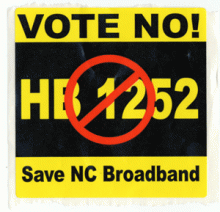Cedar Falls, Iowa, is the latest of a number of publicly owned cable networks that are upgrading to FTTH. Cedar Falls has been planning this for some time, squirreling away net income over the years as it ran surpluses to help afford the costly upgrade. A
story in the WCF Courier notes it will cost $17 million and is expected to be completed in 2012. The bonds used to finance the project will be repaid over 10 years.
When I last spoke to folks in Cedar Falls, they had massive take rates - bolstered by local service that Mediacom could not compete with. Cedar Falls Utilities (CFU) had already been offering fiber services to local businesses and will be expanding that to the entire area. According to an
article in the Cedar Falls Times, the utility had already been installing FTTH capability into greenfield developments, so they have certainly planned for this transition.
Motivation for the upgrade seems to be the faster broadband speeds and more capacity for HD channels. The Utility also noted that needed bandwidth has been doubling every year -- a likely reason they opted for FTTH rather than a cheaper DOCSIS3 upgrade that would not offer the same scalability as FTTH (and DOCSIS3 is much more constrained in upstream capacity).
The Cedar Falls Times article explains the benefits of FTTH over HFC:
An HFC plant uses thousands of active devices (such as amplifiers) to keep data flowing between the customer and the service provider. Any one of these devices can fail, interrupting service. In contrast, the all-fiber plant will be a passive optical network, with no active components between the distribution center and the end user. Fewer “moving parts” means fewer points of failure and a more reliable system.
CFU puts community needs first:
“We know from experience that economic growth comes to cities that keep their infrastructure up to date, whether it’s roads, water, electricity or broadband,” said Krieg [CFU General Manager]. “CFU is going to do what it takes to make sure Cedar Falls has leading-edge communications technology, and maintain economical rates for internet and video services.”
The network was launched in 1996, one of the first communities with citywide broadband access.



